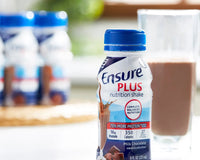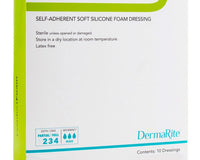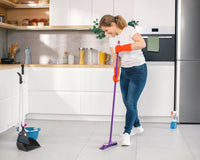Welcoming a new addition to the family is an exciting time that requires careful planning and preparation. One essential item that should be at the top of every new parent's checklist is a sufficient supply of diapers. As you embark on the newborn diaper journey, it's important to consider how many diapers to buy for newborn to ensure your baby's comfort and hygiene.
On average, newborns go through 10 to 12 diapers a day during the first month of life. That means parents can expect to use approximately 300 diapers in the first four weeks alone! It's essential to be well-stocked to avoid frequent trips to the store, which can be especially challenging with a newborn.
When purchasing diapers for your newborn, consider the baby's weight and the diaper's size. Newborn diapers typically accommodate babies up to 10 pounds, but since infants grow at different rates, it's prudent to buy a variety of sizes. Begin with a couple of packs of newborn diapers, but also stock up on size 1, which generally fits babies weighing 8 to 14 pounds.
Order online here for convenient shopping and doorstep delivery! At Cart Health, we understand the unique needs of new parents. We offer a wide range of diaper brands and sizes to meet your baby's specific needs. Join the Cart Health family to experience the convenience and support we deliver as you navigate the early stages of parenthood.
Understanding Newborn Diaper Needs
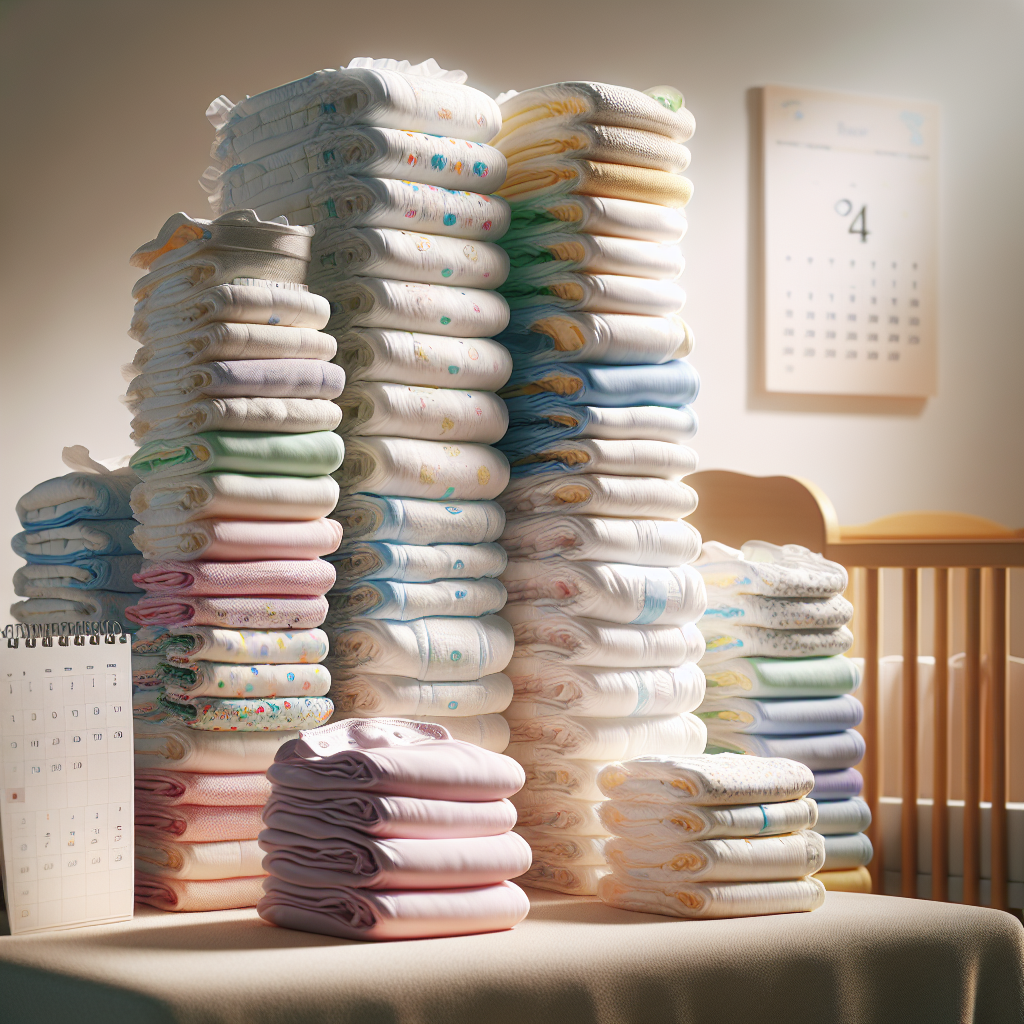
Understanding your newborn's diaper needs is crucial for ensuring their comfort and avoiding unwanted leaks and accidents. Newborns can have very sensitive skin, and the right kind of diaper is important to prevent irritation. Disposable diapers are popular for their convenience and absorbency, while cloth diapers are appreciated for their cost-effectiveness and environmental friendliness. Regardless of the type you choose, knowing the quantity to purchase can save time and reduce stress.
Keep in mind that during the first few weeks, newborns may have a higher frequency of bowel movements, which can influence the number of diapers you'll go through. It's also wise to pay attention to your baby's growth pattern. Some babies may transition out of newborn sizes quicker than others, which is why it's important not to overstock on one particular size.
Tracking your baby's diaper usage over the first week can provide a better estimate for future needs. Additionally, it's important to be observant for signs that your newborn is ready to move up a size – such as marks on their skin from tight diapers or frequent blowouts. By closely monitoring these factors, you can make informed decisions on how many diapers to buy for your newborn, ensuring that you are always prepared for your little one's needs.
Estimating Daily Diaper Usage for Newborns

When it comes to estimating daily diaper usage for newborns, parents can anticipate a surprisingly high number. On average, a newborn goes through about 10 to 12 diapers per day. This is due to their small bladder size and the need for frequent changes to prevent diaper rash and other discomforts. It's essential to keep in mind that every baby is different, and so the number can vary. Some infants may require more frequent changes, while others might use fewer diapers.
To better prepare for your newborn's arrival, a good rule of thumb is to have approximately 70 to 84 diapers on hand per week. This ensures that you'll be adequately stocked for about a week's worth of changes without the need for emergency runs to the store. As the first month progresses, you may notice a gradual decrease in the number of diapers used daily, but initially, it's better to be over-prepared than under.
Maintaining an ample supply of diapers also means taking into account the possibility of unexpected leaks or messes that require additional changes. By calculating your supply based on the higher end of the average, you'll give yourself a comfortable buffer. Remember, maintaining a stockpile of diapers isn't just about quantity; it's about ensuring the health and comfort of your newborn by changing them regularly and using the right size.
Stockpiling Diapers: How Much is Enough?

As you consider the question of 'how many diapers to buy for newborn', it's crucial to find a balance between having an ample supply and avoiding overstocking. Stockpiling diapers requires thoughtful consideration of space, budget, and the baby's growth rate. While it's wise to have enough diapers to avoid daily trips to the store, purchasing too many of one size can lead to waste if your baby outgrows them faster than anticipated.
A realistic approach is to aim for a one-month supply of diapers for your newborn. This equates to around 300 diapers, assuming an average of 10 diapers per day. It's advisable to monitor your baby's growth and adjust your stockpile accordingly. Babies typically stay in newborn size diapers for one to three months before moving to larger sizes. As such, starting with a one-month supply and then purchasing more as needed can be a practical strategy.
Another factor to consider is the variety of diaper brands and types available. It might be beneficial to try different brands in smaller quantities before committing to a bulk purchase. This allows you to find the brand that best fits your baby's needs and reduces the likelihood of skin irritations or leaks.
Ultimately, the goal is to have enough diapers to ensure convenience and comfort for your newborn without excess that could go unused. By being mindful of your baby's unique needs and growth patterns, you can create an effective diaper stockpile that minimizes stress and maximizes preparedness.
Choosing the Right Diaper for Your Newborn
Selecting the right diaper for your newborn is a critical decision that can impact your baby's comfort and health. The market offers a vast array of diaper brands and types, each with unique features designed to cater to different needs. To navigate this choice, consider factors such as absorbency, material, and fit.
Absorbency is paramount when it comes to preventing leaks and keeping your baby dry. Look for diapers that offer multiple layers of protection and are specifically designed to handle the frequent urination of newborns. Additionally, consider diapers with a wetness indicator, which can be a convenient way to know when it's time for a change without disturbing your little one.
The material of the diaper is another important consideration. Many parents opt for hypoallergenic and fragrance-free options to reduce the risk of skin irritations. If you're environmentally conscious or prefer natural products, you may want to explore cloth diapers or brands that use organic and sustainable materials.
Finally, the fit of the diaper should be snug yet comfortable, with adjustable fasteners that can accommodate your baby's growth. A proper fit helps prevent leaks and ensures that the diaper stays in place, even as your newborn moves and squirms. It's beneficial to purchase a small pack of several different brands initially to determine which one suits your baby the best before buying in bulk.
By focusing on these key features, you can choose a diaper that will keep your newborn dry, comfortable, and happy. Remember that every baby is different, so what works for one may not work for another. Trust your instincts and don't hesitate to switch brands if a particular diaper doesn't meet your expectations.
Strategies for Managing Your Newborn's Diaper Supply
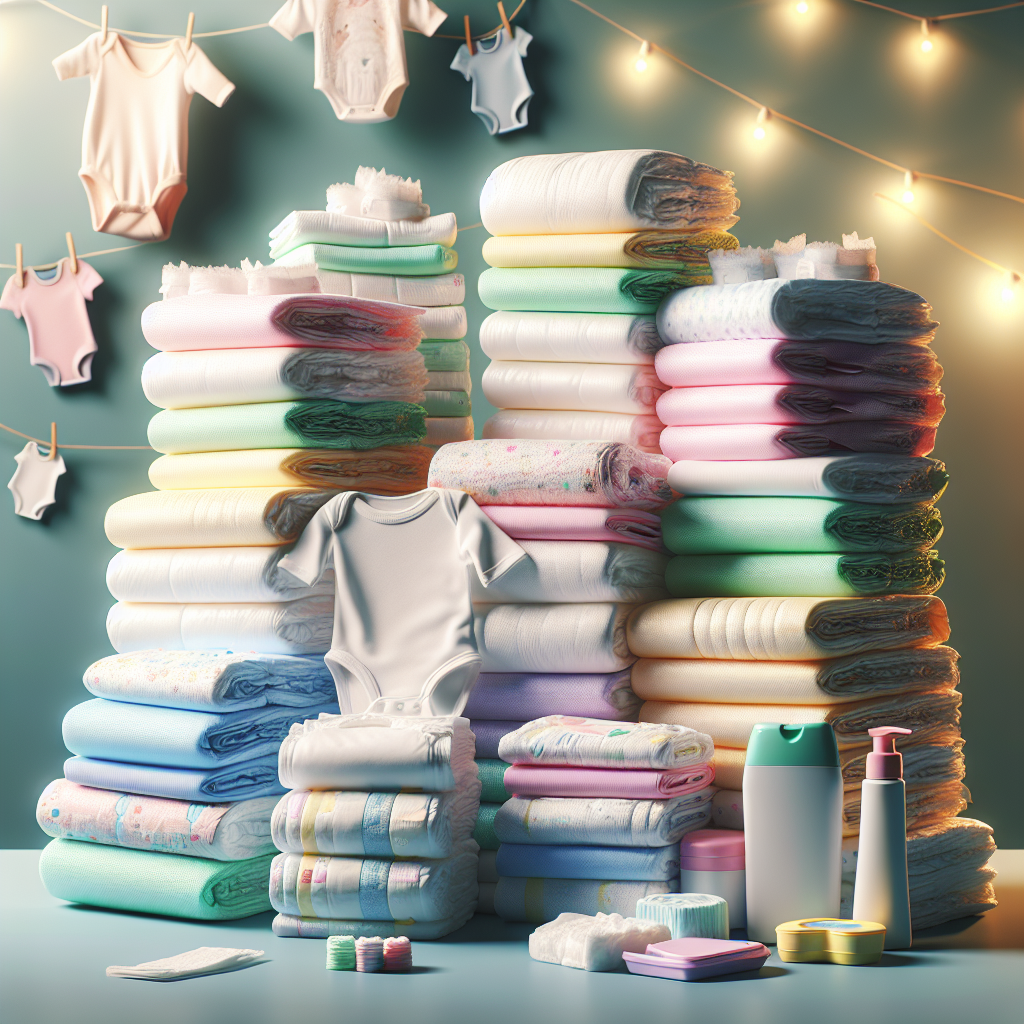
Efficiently managing your newborn's diaper supply ensures that you are always prepared for any situation, without overstocking or wasting resources. Here are some strategies to help you keep track of your diaper needs and maintain an optimal supply:
- Monitor Usage Patterns: Keep a log of how many diapers your baby uses each day. This will help you predict how many diapers to buy for your newborn and identify any changes in usage patterns as your baby grows.
- Buy in Bulk Wisely: Purchasing diapers in bulk can be cost-effective, but be cautious. Since babies grow quickly, they might outgrow a size sooner than you expect. Consider buying larger quantities only when you're certain about the size that fits your baby well.
- Subscribe and Save: Many online retailers offer subscription services where you can get diapers delivered at regular intervals. This not only saves time but also often provides discounts.
- Stock Different Sizes: As babies grow at different rates, it's prudent to have the next size up on hand. This prevents emergency runs to the store and allows for a smoother transition between sizes.
- Have a Diaper Station: Organize a dedicated area in your home for diaper changes with all the necessary supplies. This helps in keeping an eye on what you have and what needs to be restocked.
By implementing these strategies, you can maintain an adequate diaper supply without the stress of last-minute shopping. And remember, at Cart Health, we're here to support you every step of the way. If you're in need of high-quality diapers or have specific requirements, Order online here for convenient shopping and doorstep delivery! Join the Cart Health family to experience the difference in care and convenience we bring to your door.
With a little planning and organization, managing your newborn's diaper supply can be a streamlined process, giving you more time to focus on the joys of parenthood.



